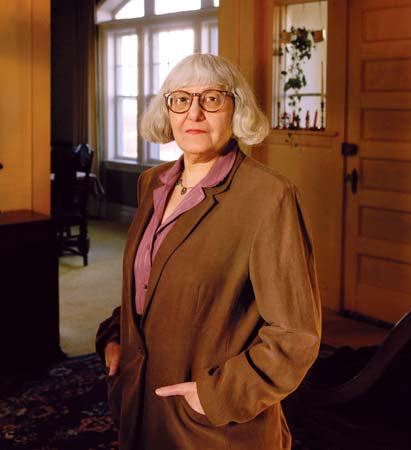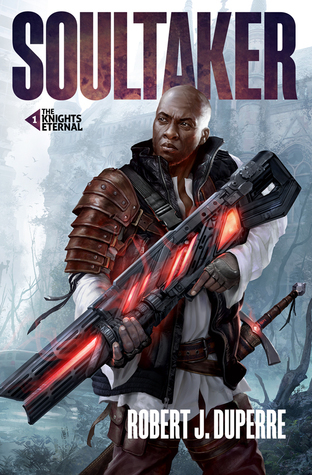The book reviewer begins his day at seven in the evening. His life proceeds according to unvarying routine. Marriage, fatherhood and companionship are relics of a distant and improbably quotidian past: “he had no wife; his apartment was no bigger than a crack in the wall, and any visitor was a biennial event.” Favoring esoteric literature, his newspaper column is relegated to the unpopular Monday slot. In his spare time, he naps, haunts the local bookstore, and walks aimlessly around the nighttime city. If this sounds like the précis for something out of Bruno Schulz, the prose with which it is rendered is even more simulative:
He had no dreams. Afterward his lids clicked open like a marionette’s and he saw: what he saw, before he had formulated even a word of it, was his finished work. He saw it as a kind of vessel, curved, polished, hollowed out. In its cup lay an alabaster egg with a single glittering spot; no, not an egg: a globe, marvelously round. An eye. A human eye: his own; and then not his own. His father’s murdered eye.
Lars Andemening, the haunting and haunted bibliophile at the center of Cynthia Ozick’s The Messiah of Stockholm, sees the smallness of his world through the expansiveness of this eye. It is the eye of Bruno Schulz, the man he believes is his father, a Jewish writer of surpassing elegance who was murdered by Nazis on the streets of Drohobycz in Poland. If Lars is wrong about his filiation (he almost certainly is), he is right about something else, a more difficult, less unalloyed truth. It’s a truth he has gained at great cost to his private life, losing two wives and a daughter in exchange for the ocular range of a literary visionary. Lars’s monomania is such that he is unable to assimilate the necessary banalities of ordinary life. His apartment has no telephone, no typewriter. At the newspaper office, his co-workers’ references to Apple and IBM are jarring. Lars’s backwards-looking eye renders Stockholm the way Schulz depicts Drohobycz: timeless and ethereal. Ozick is so excellent at this ventriloquism that I repeatedly had to refer to the copyright page in order to orient myself by year of publication (1987).
Like Schulz’s stories, The Messiah of Stockholm unlocks and expands the imagination of its narrator, throwing open all sorts of improbable doors, very few of which lead back to what might be thought of as the “present,” the real world. The present for Lars is so monochromatic, it is no wonder he refuges himself in the expansive colors with which Schulz’s fantastical vision endows him. Schulz’s stories gain not a little of their exquisiteness from what we know of the brutality of their author’s world. Lars’s Stockholm, by contrast, is pacific to the point of monotony. One of Ozick’s more audacious conceits is the juxtaposition of Lars’s pettish rejection of Swedish dullness with the far more sublime subversion latent in Schulz’s indelible texts.
 Cynthia Ozick
Cynthia Ozick
One of those texts is the lost manuscript alluded to in the title. When Bruno Schulz was shot in 1942, he left behind the unfinished manuscript of a novel called The Messiah. This manuscript was lost, but Lars includes it as part of Schulz’s body of work. “Don’t forget The Messiah,” he says to Heidi, the bookseller who seems to be his only confidante. She retorts: “You can’t count what doesn’t exist. It doesn’t matter what he wrote. The only thing that matters is what’s here to be read.” Heidi’s dry rationality is an excellent foil for Lars’s brainy cluelessness. (“And what are you?” Heidi is asked. “By religion?” she says. “A bookseller.”) Heidi refuses to believe Lars’s great claim. “Prove you’re your father’s son,” she insists. “Why don’t you prove it? I don’t say prove he’s a genius. I don’t say prove his nouns and verbs. I say prove he’s your father.”
But such proof cannot be handed over like a lost manuscript. Like a sickness, it’s something which has taken hold of him from the inside out. “When I wake up,” Lars says, “I can see my father’s eye. It seems to be my eye, but it’s his. As if he lets me have his own eye to look through.” This, of course, is what all great writers do, but not all readers take it quite so literally. By the same token, not all readers read so deeply as Lars and the great irony of The Messiah of Stockholm is the way it explores the perils of reading too deeply through an author whose work rewards close examination.
What outrages Lars isn’t Heidi’s inability to credit his claims about Schulz. It’s the idea that she doesn’t appreciate Schulz’s genius. When Lars passes the Swedish Academy every day on the way to work, he sees an institution which – according to him – undoubtedly would have awarded his father the Nobel Prize for Literature “if he had lived.” Lars takes this for granted. By contrast, he suspects “that Heidi cared more for his father’s death than for his father’s tales, where savagely crafty nouns and verbs were set on a crooked road to take on engorgements and transmogrifications: a bicycle ascends into the zodiac, rooms in houses are misplaced, wallpaper hisses, the calendar acquires a thirteenth month.” Anything can happen, in other words. And anything does. Out of the blue, a woman named Adela (a resonant name for those familiar with Schulz’s stories) arrives in Stockholm. She wears a white beret, carries a white plastic bag, and she says she is Lars’s sister. One more thing: she claims to have the manuscript of The Messiah.

Bruno Schulz
The genius stroke of Ozick’s short novel is the eminently plausible and surprisingly comical reaction of Lars to what should be the break of a lifetime. He simply doesn’t believe it. Moreover, he’s outraged. “There’s no room in the story for another child. It’s not feasible. It can’t be. You know the story as well as I do. There’s only me.” At once, Heidi and Lars’s roles are reversed: she’s the believer when it comes to Adela and Lars is the skeptic. Their dialogue has some of the zaniness of Abbott and Costello in “Who’s on First?”:
“Well, maybe there’s you and maybe there’s not. And if there’s you, why can’t there be another one?”
“What did she [Adela] say? What exactly?”
“That the man who wrote The Messiah was her father.”
“But he’s my father!” Lars cried.
Heidi beamed out a rascally gleam. “If the manuscript doesn’t exist, and the daughter doesn’t exist – ”
“You know there’s no daughter.”
“ – then maybe there’s no son either.”
“I’m here. Here I am.”
“That’s what she said. A biblical annunciation. And every bit as convinced of it as you.”
Some of Ozick’s most vivid writing shines like a fluorescent bulb on the shabby newspaper where Lars grudgingly works. Lars’s colleagues, arguably the novel’s most relatable characters, banter around him, as if he were some sort of fern with whom they were casually conversant. When they do engage him directly, their tone is teasing: “Soft-pedal the surreal,” one of them urges. “Go easy on the existential dread, how about it?” These are “literary creatures who served, sidestepped, and sometimes sold out the Muses. Their so-called scandals, their scramblings, their feuds, their polymorphous life in the stewpot: how innocent, how distant from the palaces of live thunder, how weak they were before the altar of Lars’s father’s unmoving eye.”
Much is made of this eye, and with good reason. Its powers of discernment bestowed upon the most ordinary of days the transcendence of fantasy. Schulz’s lyrical gifts made this a style, and the malignancy of Nazism turned this style into an act of rebellion. After all, what could be more antithetical to the murderous turpitude which terrorized Drohobych than this passage from The Street of Crocodiles?
I shall never forget that luminous drive on the brightest of winter nights. The colored map of the heavens had expanded into a vast cupola, where fantastic lands, oceans, and seas towered, etched in lines of starry whirlpools and currents, luminous lines of celestial geography. The air became easy to breathe, was lit up like a silver gas. It held a scent of violets. From under the snow, woolly like white karakul furs, tremulous anemones began to appear, a spark of moonlight in each delicate chalice. The entire forest was illuminated as if by a thousand lights, stars that the December firmament was plentifully shedding. The air breathed with some secret spring, the inexpressible purity of snow and violets. We entered the hilly terrain, and the lines of hills, shagged with the bare twigs of trees, rose like blissful sighs into the sky.
When Lars invokes his dubious paternity, his appeal is anything but evidentiary; he has no “solid tale,” only “this rush of blood” – the feeling, in other words, to which the reader of Bruno Schulz is repeatedly subjected. What Lars can’t abide, however, is that this feeling is other than uniquely his. Lars’s resistance to Adela becomes more peevish and paranoid as events come to a head. He thinks her manuscript of The Messiah is a fake. He thinks Heidi’s husband, Dr Eklund, doesn’t exist. “Not everyone has to exist,” Lars ruefully says when he actually meets Dr Eklund in person. The doctor’s reply exemplifies Ozick’s sly mordancy: “That is remarkably plausible.” For all of the wildness and abnormality which preceded it, the final pages of Ozick’s Messiah are, it should be said, also remarkable for their plausibility. Much like Schulz’s own writings, a series of strange digressions lead, in the end, back to a world we can recognize. The reader, finishing a tale out of The Street of Crocodiles may find himself delighted and bewildered, and a little sad that the magic has ceased. Lars, for whom the magic was everything, the digression the main path, “grieved for his life.”
Not because he had failed to purify it. And not because of the lost Messiah. And not because he was an elderly orphan, and had put his finger into a dictionary to needle out a name. And not because of that perjured eye, thrown like a broken blind coal among the cinders of the brass amphora.
The ending is enigmatic, but we are meant to understand that Lars grieved, as we do, that a man with so much left to give was gunned down by thugs who, in that gesture, had given what little they had.
Advertisements Share this:




